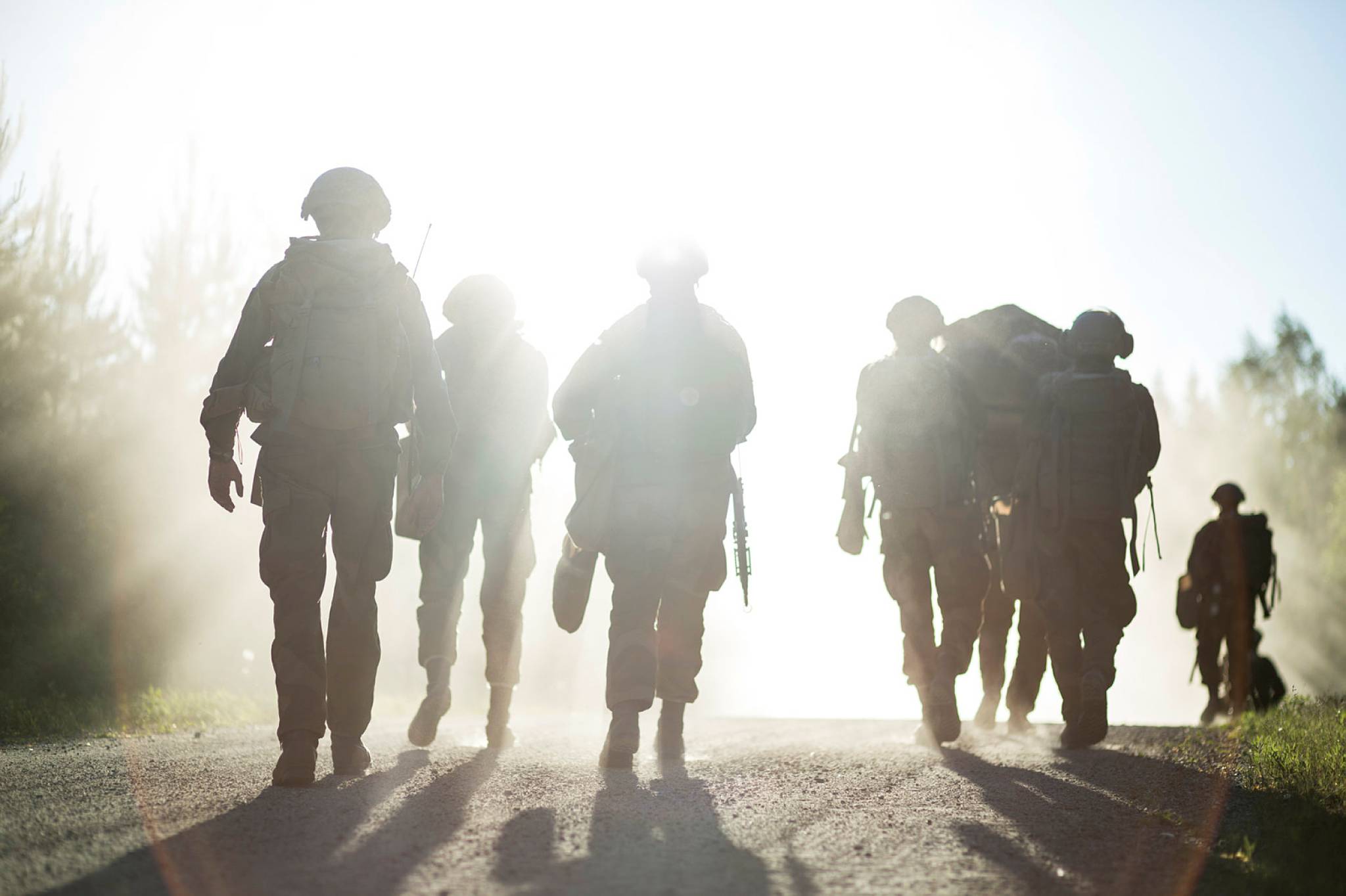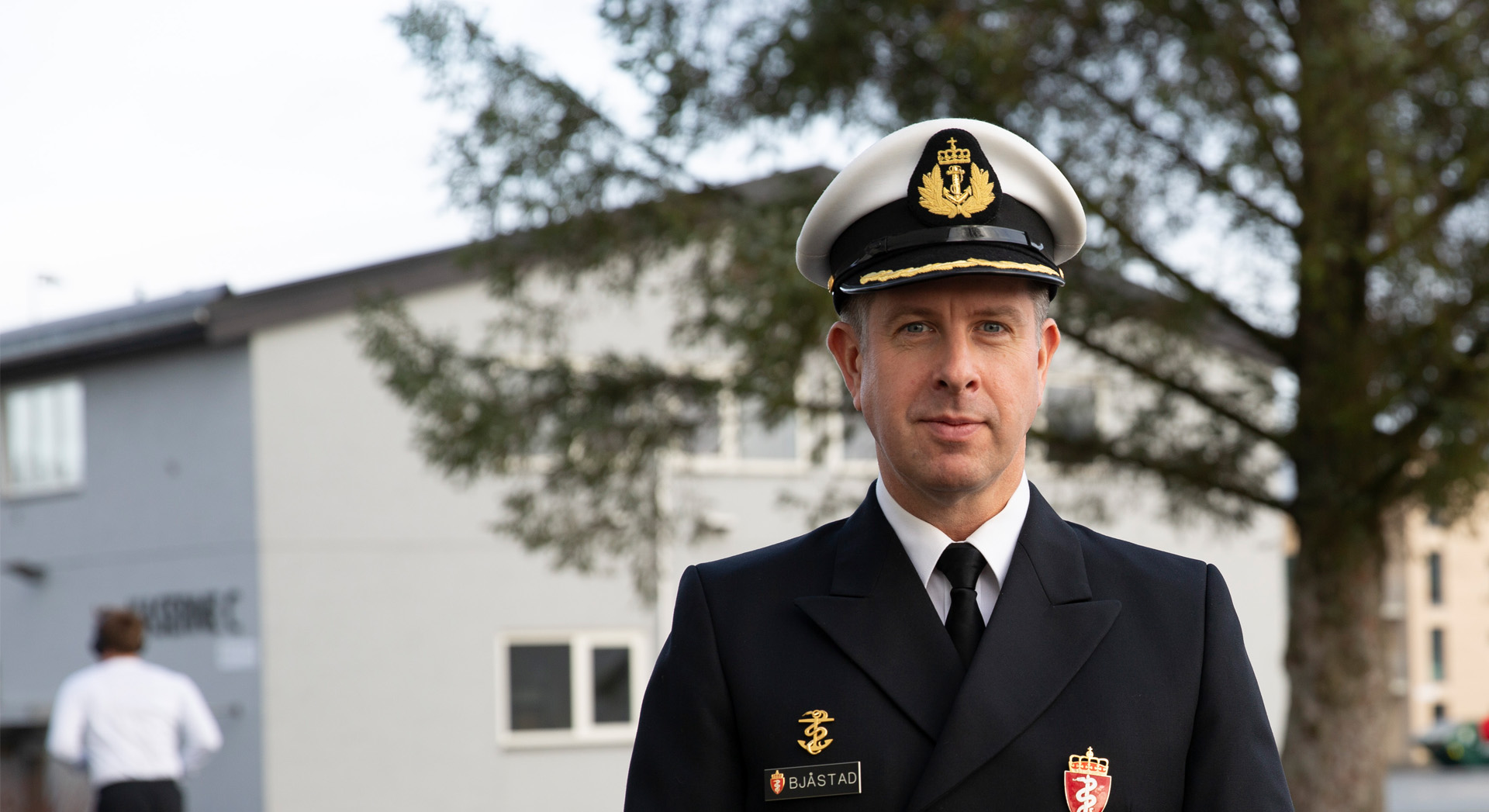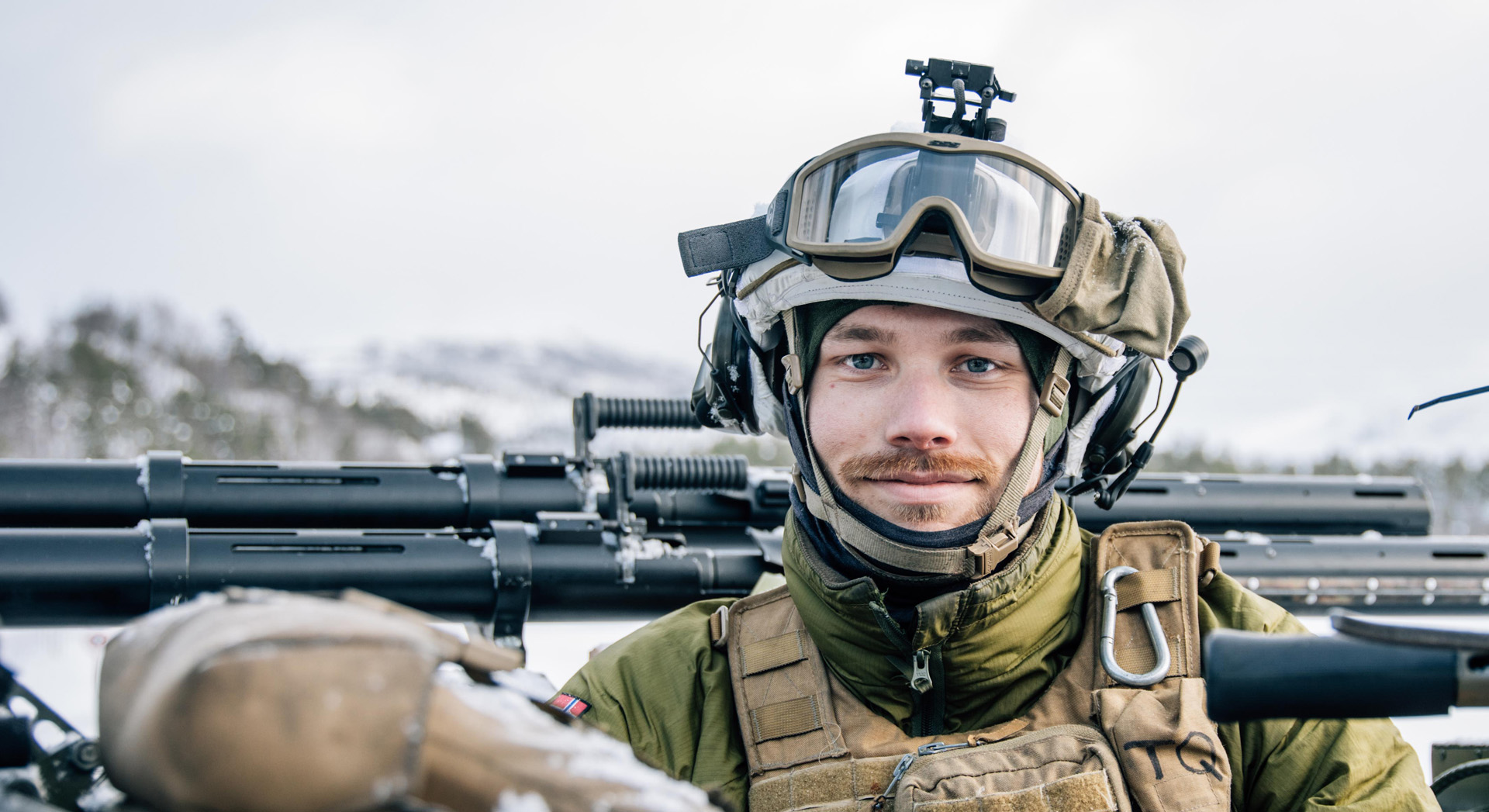Coping in troubled times
The Norwegian armed forces have worked systematically for many years to safeguard the mental health of their personnel. So can military methods for stress management help civilians as well?
 Photo: Forsvaret
Photo: Forsvaret
- Working environment
Commander Jon Fauskanger Bjåstad, a clinical psychologist, knows a lot about how uncertain times affect people mentally and what they need to do when war and crises dominate the news.
Employed by the institute of military psychiatry in the Norwegian Armed Forces Joint Medical Service, he works out of a building at Stavanger’s Madlaleiren naval base with a simple red cross over the door.
Bjåstad and his colleagues in the institute produced a mental health guide for Norwegian troops soon after Russia invaded Ukraine in February 2022. This was based on the principles for managing stress in the various operations of the armed forces.
“Put briefly, it’s about being aware of how you’re consuming news stories and reminding yourself that you’re doing an important job,” he says.
“You also have to learn to recognise how your thoughts affect your feelings, and make sure that you draw on your social support network.”
And the guide then advises the reader to seek help if they need it.
“When we published this, we didn’t know how worried people were or how the war would develop,” Bjåstad observes. “And it remains relevant now, so we’re still referring to it. None of the ideas are new, but we know the advice works.”

Acceptable
Asked what is important in managing to keep stress at an acceptable level, he identifies two key aspects – individual measures and action at the system level.
“In the first case, the individual learns how to cope with stress. The other concentrates on the working environment and a culture of openness.
“We know that a good working environment, good managers, a functioning health services and structures like a buddy system have a preventive effect.”
Having someone you can turn to with your concerns is important, Bjåstad observes. “We also know that pressure builds up if you have worries at home while on assignment. Such cumulative stress is an important factor when things get too much.”
He draws parallels here with the petroleum sector. “Offshore workers are also away from their family frequently and for long periods, live cheek by jowl with others, have limited freedom of movement – and therefore depend on a good working environment.”
Dialogue
So a good and open dialogue plays a key role in identifying whether people are worried, Bjåstad says. Conducting a survey might then make sense.
“Perhaps job reviews should include a question on how the employee assesses the risks of their job? Even though most people may not be particularly worried, it could be necessary to identify the group who’re not sharing their anxiety and stress.”
He has long experience of visiting troops on foreign postings. Everyone there is called in for mandatory psychological reviews, where the threshold for talking about difficulties is lowered.
“We don’t ask those with problems to put up their hand,” Bjåstad says. “We talk with everyone. That systematises things and creates a relationship which makes it easier for people to return later if they feel the need.
“The same type of follow-up discussions are also held when the troops are on their way home, in addition to another talk a year later.”
We know that a good working environment, good managers, a functioning health services and structures like a buddy system have a preventive effect.
Fearful
He finds it understandable that many people have felt more fearful since the Ukraine war began. At the same time, it is important to tell yourself that Norway faces no direct threat today.
“We humans differ in the way we perceive risk,” Bjåstad notes. “Some of us are more at the mercy of our feelings than others. Emotional risk assessment is much quicker than applying logic and probability.
“Feelings stirred up by circumstances are prioritised first, while cold reasoning comes into play later. That’s something to think about these days, when we’re constantly surrounded by media images which trigger the emotion-driven brain.”
An important piece of advice therefore deals with facts and how people should read and relate to information coming from different media sources.
“I think it’s sensible to be conscious of where and when we read the news, because we can be overwhelmed by sensory impressions and their quantity.
“We humans are designed so that our brains seek out threats and risk. So it can be useful to stop checking the news as soon as you get up and just before going to bed, when your mental defences are a little weaker than if you’re fully awake.”
Vigilance
Striking a balance between increasing your vigilance while staying calm can also be demanding.
“We want troops who’re out on an operation to be wound up. They must be alert to possible threats,” says Bjåstad. “They’re trained and drilled in that.
“At the same time, we’re concerned to ensure that they wind down once they’re home. That’s important for avoiding problems like post-traumatic stress symptoms.”
This division between alertness and relaxation is equally important in other sectors, he notes.
“If you’re constantly on edge, you’ll eventually reach a point where alertness imposes such a strong stress reaction that you no longer function. Then you’re not paying adequate attention to security.”
Worrying
A number of techniques are available for reducing stress. Learning to recognise when you are sapping energy through unnecessary worrying is crucial.
That is when good habits are important – such as starting an activity or allocating time to worry at the end of the day. Stress can easily become embedded in the body, so such things as learning breathing techniques or relaxation exercises can be useful.
“And it’s important to remember that not all stress is bad. After all, we generally need a bit of it in order to get ourselves moving.”
Reminding yourself about the meaningful aspects of your job also makes sense. Norway’s oil industry, for example, has a more important role than ever in ensuring energy supplies and welfare for Europeans.
“When we’re involved in something that gives meaning to our lives, we can cope with a higher level of uncertainty,” Bjåstad observes.
If you’re constantly on edge, you’ll eventually reach a point where alertness imposes such a strong stress reaction that you no longer function. Then you’re not paying adequate attention to security.
Normal
Good information also has an important function. The Norwegian armed forces devote a lot of work to preparing their troops for dealing with reactions which they should regard as normal.
“When they’ve been told how they may respond in different circumstances, soldiers become less concerned about what we consider ‘normal’ behaviour,” Bjåstad explains.
“We often conduct group conversations on this subject, because people can easily get worried about their reactions. That’s why knowing what’s normal is important – it teaches people there’s a wide range of ways to respond.
“A number of different reactions are normal after you’ve been in a tight spot. Knowing that this applies to you and others is perhaps easer to accept than thinking you’re the only one.
“That’s how information can help to reduce stress, because it helps you to appreciate that others also share the same responses – and that it’s normal.”

Extract from the guide for service personnel produced by Commander Bjåstad and colleagues for the Norwegian armed forces.
The war in Ukraine is making an impression on all of us. What’s sensible to do at this time to protect your own mental health?
The war now under way in Ukraine is exposing all of us to news about and images of hostile action hurting innocent people. Some may feel more worried, and others not. Both responses are normal. A number of things could be sensible to do in order to protect your own mental health in such circumstances.
Stick to the facts. We all have a need for information, and that’s understandable. But try to be critical of sources (particularly on social media) when keeping informed about the war. Generally use large news channels such as public broadcaster NRK and sources like Forsvaret.no (the armed forces website).
Preferably limit how often you read news stories to a few times during the day and avoid this activity at bedtime or when you wake up. Maintain sound “screen hygiene” by taking good breaks from watching.
Some people using social media as a news source – which could involve exposure to a lot of video material, for example – may experience more distress than when relying on traditional media, which are subject to editing and fact-checking.
Although Norway does not face a direct military threat, media exposure could contribute to some Norwegians overestimating the threat picture for us and cause unnecessary concern. People should stick to information based on facts rather than rumour. Remember that we have our own personnel in the armed forces who assess the security position in Norway and give us good information.
Remember that you do an important job. The armed forces have an important role to play in ensuring security for our country and our population, where you represent a significant part and function. That part is important even in circumstances where the threat to Norway has not been increased.
Assess your own thoughts. We all conduct a continuous “internal conversation” with ourselves through our thoughts. Our brain is created to protect us, so it’s therefore normal that it concentrates attention on possible threats. Appreciating that we might have a tendency to exaggerate the probability of something dangerous happening while simultaneously underestimating our own ability to cope, could be important. So try to evaluate how likely what you’re thinking is. The way we view the Ukraine war could influence our feelings, our physical reactions and our actions. Subjecting our own thoughts to a conscious assessment may have a positive effect on our feelings. If you’re very worried, it could be useful to read more about some helpful techniques which we’ve listed in a separate document.
Keep in touch with your social contacts. Social relationships give us opportunities for fellowship, where we can share our thoughts and ways of dealing with things. Go on doing your usual leisure activities and maintain social contacts with others. Do something nice for other people and help to give them a feeling of fellowship.
Seek help if you need it – don’t sit on your own with big worries. Anxiety is a normal and natural reaction to uncertainty. But if you experience troublesome reactions which get in the way of your daily life/service performance, it’s important to seek help. This can be found in the civilian sphere, through your superior officer or directly through a military hospital.
Source: The Norwegian Armed Forces
Read more articles about security:
Security in uncertain times
-
Safety and security must be viewed collectively
-
Societal safety in a new era
-
The threat picture and Norwegian petroleum activities
-
Coping in troubled times
-
Tackling the threats
-
Calm under pressure
-
Standing firm against a storm
-
Ransomware taught key lessons
-
Stronger spotlight on ICT security
-
Praise for oil and gas sector from armed forces chief